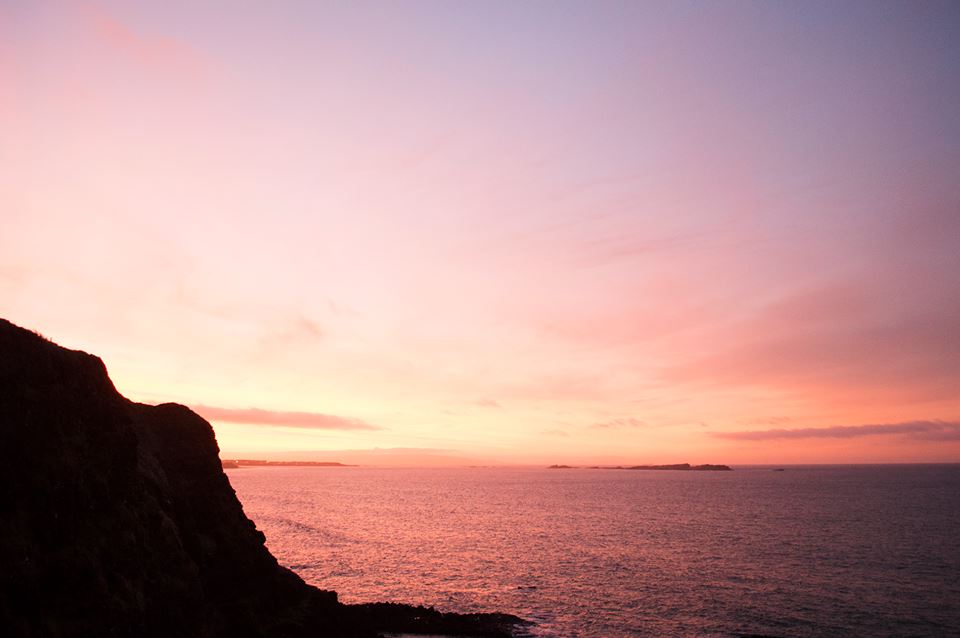
Changing the Conversation about Climate Change
Climate change, global warming, and the greenhouse effect—we’ve heard the same language over and over again. The earth is getting too hot, it’s happening too fast, and humanity is to blame.
And, while the scientific consensus is overwhelmingly positive that global warming is real and being caused by humans (97% of scientists), some Christians disagree. Perhaps it’s a general distrust of science, or perhaps we believe that we cannot really change the infrastructure of the world’s fossil fuel consumption, or perhaps—more ominously—we just don’t want to change our lifestyles.
The goal of this post is not to feed the flames, or to argue. The goal is to help us as Christians to think more critically about both our place in the world, and about God’s commands concerning stewardship of the earth.
And this is where deacons come in. One of the last sentences in the Christian Reformed Church’s charge to the deacons is: “Be prophetic critics of the waste, injustice, and selfishness in our society, and be sensitive counselors to the victims of such evils.” We often equate injustice with humanity. We think of words like poverty, homelessness, disability, crime, and violence. But injustice is also about God’s good creation. It is about how we, as humans and image-bearers of God, relate to our surrounding natural environment.
In Genesis 1, God gave us the cultural mandate to rule and have dominion over the earth. We are to be stewards of creation—caring for the earth rather than abusing it.
In Psalm 24:1-2 (NIV), we read: “The earth is the Lord’s, and everything in it, the world, and all who live in it; for he founded it on the seas and established it on the waters.”
While we are to subdue the earth, we are also to remind ourselves that the earth is not ours. It is the Lord’s, and we have a great responsibility to care for it. And yet, there is a hostile climate—no pun intended—associated with the larger conversation surrounding global warming in the church.
Consider 2 Peter 3:10-12 (NIV):
“But the day of the Lord will come like a thief. The heavens will disappear with a roar; the elements will be destroyed by fire, and the earth and everything done in it will be laid bare. Since everything will be destroyed in this way, what kind of people ought you to be? You ought to live holy and godly lives as you look forward to the day of God and speed its coming. That day will bring about the destruction of the heavens by fire, and the elements will melt in the heat.”
The earth is going to be laid bare, and a new heaven and new earth will be created at the second coming of Christ. So, why bother caring for the earth? It’s holiness and a strong faith that matters, right?
It’s more complicated than that. How we choose to live our lives and treat the environment has much broader implications than we tend to realize.
With a warmer climate, a farmer in Kenya may not be able to predict when the rainy season will be coming, and therefore be unable to produce food for their family. A massive storm—more destructive than storms have been in the past—could hit the coast of the Philippines, destroying the communities there. Some plants and animals might become endangered, or extinct. Our decisions affect more than just our local community and ourselves.
At the end of the day, the question we should be asking ourselves is: Is the way that we’re living sustainable for the earth and everything living on it? If we don’t have any answers, or our answer does not consider the global impact of our lifestyles, it is time we started digging deeper.
There are all sorts of steps we can take towards ecological justice: calculate our carbon footprints (and offset the carbon we produce), grow some of our own food, start community gardens with our churches, know where our food is coming from, connect with organizations such as A Rocha or Citizens for Public Justice, or watch the Climate Conversation video series produced by the Office of Social Justice. The list can go on.
Christians—and deacons, especially—must work towards a vision for ecological justice, even if we don’t believe climate change to be a reality. Our creator God commands it.
Questions or comments? We would love to take part in respectful dialogue. Please leave a comment below, or contact DMC’s Justice Mobilizer, Dan Galenkamp, at dgalenkamp@crcna.org.



